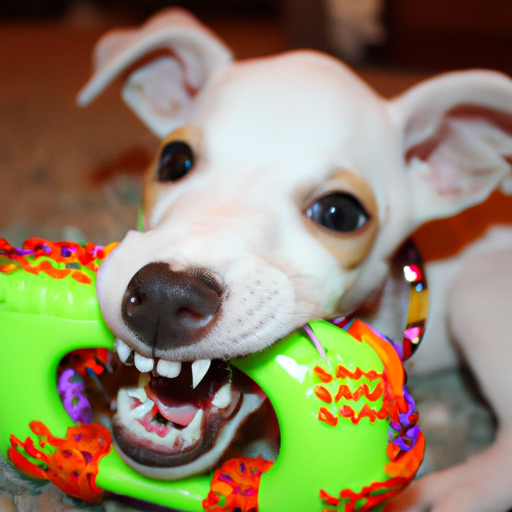Introduction
Hello there, caregiver! You’ve taken on a wonderful and rewarding responsibility of raising a puppy. Amidst all the fun and games, it’s crucial for you to pay attention to your puppy’s dental health. So, let’s dive into the world of puppy teeth and unravel everything you need to know.
Understanding the Puppy Teething Phase
Your puppy’s teething phase is an essential part of their development. It’s comparable to a human baby’s teething stage, except that puppies complete this phase much quicker. Here’s a quick rundown:
- Birth to 2 weeks: Puppies are born toothless.
- 2 to 4 weeks: The 28 baby teeth start to come in.
- 3 to 6 months: The baby teeth start falling out, and the 42 adult teeth begin to appear.
Recognizing the Signs of Teething
You might be asking, “How will I know if my puppy is teething?” Look out for these signs:
- Increased chewing
- Drooling
- Missing teeth
- Red, swollen gums
- Changes in eating or sleeping habits
Caring for Your Puppy’s Teeth
As a caregiver, you play a critical role in your puppy’s dental health. Here are some steps to ensure it:
- Brush regularly: Brush your puppy’s teeth daily, or at least several times a week. Use a toothbrush and toothpaste designed specifically for dogs.
- Provide teething toys: Teething toys can provide relief and stimulate the growth of adult teeth.
- Healthy diet: A balanced diet is crucial for your puppy’s overall health, including their teeth.
- Regular vet check-ups: Routine dental check-ups are essential to keep an eye on your puppy’s dental health.
Potential Dental Problems in Puppies
Puppies are prone to certain dental issues, such as:
- Retained Deciduous Teeth: Sometimes, baby teeth don’t fall out as they should, leading to overcrowding and misalignment.
- Gingivitis: This is inflammation of the gums, often caused by plaque and tartar buildup.
- Periodontal Disease: This is a severe gum disease that can result in tooth loss and other health problems if left untreated.
Table: Puppy Teeth Timeline
| Age | Teeth Development |
|---|---|
| Birth | Born toothless |
| 2-4 weeks | 28 baby teeth start to come in |
| 3-6 months | Baby teeth start falling, adult teeth appear |
FAQs about Puppy Teeth
What should I feed my teething puppy?
During the teething phase, your puppy might feel discomfort while eating hard food. You can soften their kibble with some warm water or offer them wet food.
How can I soothe my puppy’s sore gums?
Chewing can help ease the discomfort. Provide your puppy with safe chew toys. You can also try freezing a wet washcloth for your puppy to chew on.
When should I start brushing my puppy’s teeth?
You should start brushing your puppy’s teeth as soon as their baby teeth start to come in, typically around 2-4 weeks of age.
Conclusion
Taking care of your puppy’s teeth may seem like a daunting task, but with a little patience and consistency, it can become a simple part of your routine. Remember, a healthy set of teeth contributes significantly to your puppy’s overall well-being. As a compassionate caregiver, you’re already on the right track to ensuring your furry friend grows up healthy and happy.



